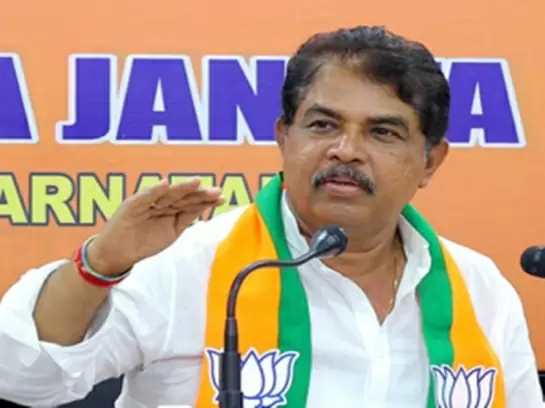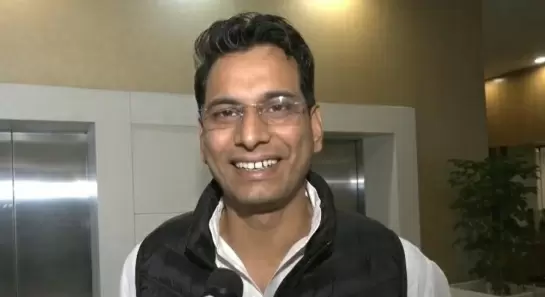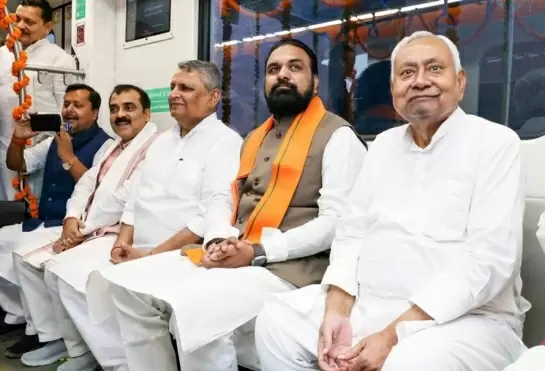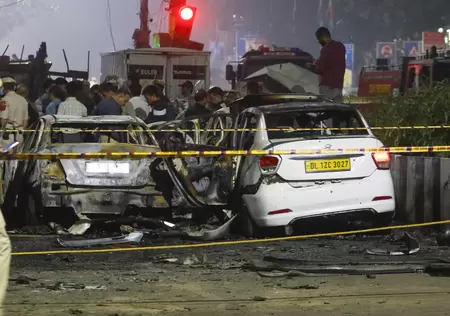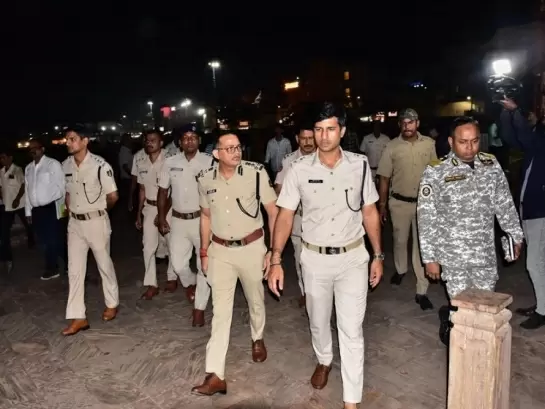'Ker Puja' to thwart evil bars birth, death, recreation
23-July-2019
There is no place for death, birth or even recreation in the celebrations of the centuries-old 'Ker Puja' in Tripura and elsewhere in the Northeastern states as well as in the Chittagong Hill Tracts of Bangladesh.
This mega tribal event, consisting of intricate, time-honoured rituals, is about well-being and warding off evil spirits. The 31-hour-long festival has begun from late Monday night and the actual 'Ker Puja' is being held on Tuesday.
As part of the ceremonies, no pregnant woman or critically ailing person is allowed inside the puja ceremony areas notified by the Tripura government. Anyone who violates this is made to pay a fine and the puja has to restart from the initial stage.
Sponsored by the state government, 'Ker Puja' is one of the important events in Tripura's calendar. Elaborate arrangements are made to ensure that the ceremonies pass off peacefully and in a sacred manner.
According to writer and historian Salil Debbarma, the 'Ker Puja' is nowadays organised by some of the the tribal populations in Assam and few other Northeastern states and the Chittagong Hill Tracts in southeast Bangladesh.
As has been the norm, the West Tripura district administration has notified the 'Ker Puja' areas this year too.
The area in and around the royal palace here as well as Puran Habeli, the erstwhile capital of Tripura around 12 km east of Agartala, have been notified for this purpose.
The literal meaning of 'Ker' in the tribal Kokborok language is "specified area".
"The puja starts at midnight on Monday and will continue uninterrupted for over 31 hours," the West Tripura Senior Deputy Magistrate Dhiraj Debbarma told IANS.
A notification issued by the West Tripura District Administration says: "Pregnant women and the sick are to be kept out of the specified puja area. No one is allowed to enter the notified area."
"The government notification issued last week and widely circulated, prohibiting any kind of entertainment, dancing, singing and movement of animals in the specified Ker Puja areas," veteran tribal leader Salil Debbarma told IANS.
"The customary rules and conventions of Ker Puja are strict and not easy to follow. Around 40 years ago, the then District Magistrate had been fined for entering the Ker Puja area without permission," he said.
If there is a birth or a death in this period, then a family has to pay a fine as well.
During Ker Puja, any kind of recreation is strictly banned in the notified areas, with security personnel in guard to maintain the dignity of the puja.
"Those performing the 'Ker Puja' cannot wear stitched cloth," Salil Debbarma pointed out.
"The Tripura police offer a gun salute before the puja begins.
"The head priest and his associates light up the fire by rubbing bamboos. The tribals and people around the Ker Puja areas carry the fire to their homes believing that it would ensure their well-being and thwart the evil spirit," he added.
The rituals are carried out at government expense as per an agreement between the Tripura government and the erstwhile royal family.
Besides Agartala and Puran Habeli, the puja is organised in many tribal villages towards the end of the year or at the end of the harvesting season.
"The erstwhile royal dynasty would perform 'Ker Puja' for the welfare of the people, praying against calamities and external aggression," said writer and historian Panna Lal Roy.
"The sacrifice of birds, animals and offerings characterise this popular puja," Roy said.
A structure constructed with green bamboo poles serves as the deity for the ceremonies. The 'chantai', or head priest is regarded as the king on the occasion.
A close relative of previous royal families, Debbarma said that 90 per cent of earlier 'Ker Puja' areas are now out of the existing notified areas. He said that at the end of the 1355-year-rule by 184 kings, on October 15, 1949, the erstwhile princely state of Tripura came under the control of the Indian government after a merger agreement was signed between regent Maharani Kanchan Prabha Devi and the Indian Governor General.
The merger agreement made it mandatory for the Tripura government to continue the sponsorship of several traditional tribal pujas and 14 temples, including the Mata Tripura Sundari Temple run by the Hindu princely rulers. This continued for around seven decades.
A full-fledged department - Public Place of Worship (PPW) or 'Debarchan Vibhaga' functioning under district magistrates in four of Tripura's eight districts now has this responsibility and bears the entire expenditure of these temples in Tripura. IANS
Red Fort Blast: NIA Sets Up Special Team Led By ADG Vijay Sakhare
Red Fort Blast Linked To JeM, AGH Module; Key Suspect Umar Killed
Umar Key Suspect In Red Fort Blast; Suicide Bombing Angle Emerges
Red Fort Car Explosion Leaves 10 Dead; Terror Angle Suspected
Car Blast Near Red Fort Metro; Multiple Vehicles Catch Fire





